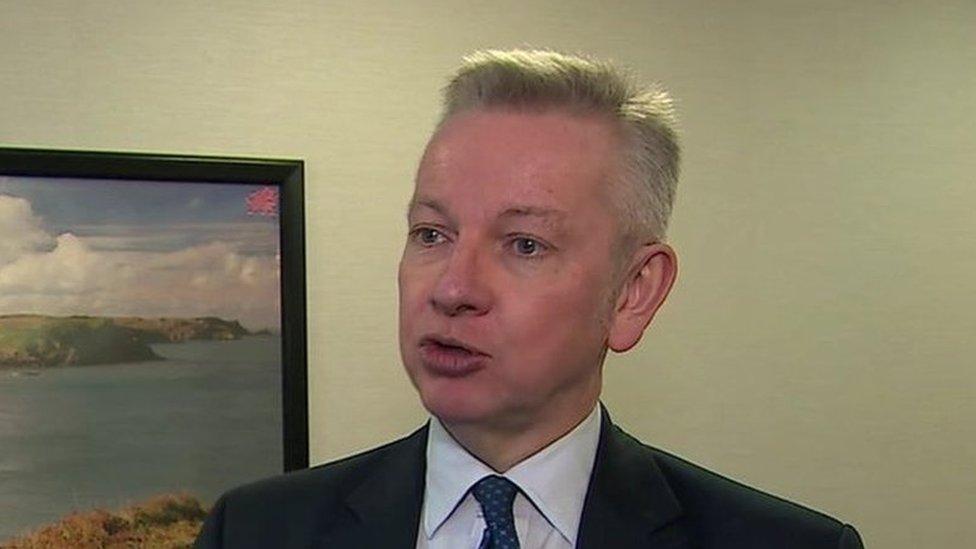Brexit: NI hauliers call for government help over checks on goods
- Published
- comments
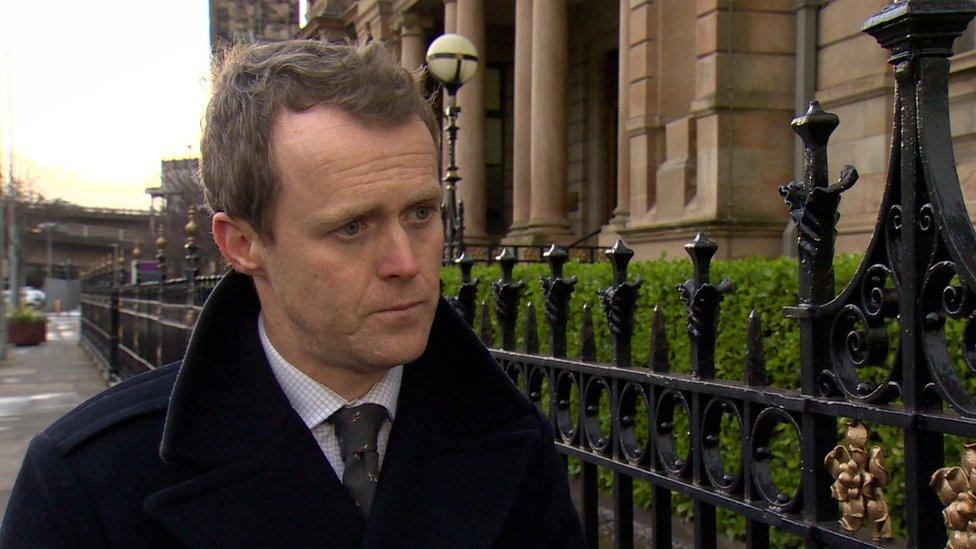
Seamus Leheny is policy manager for the Freight Transport Association
The haulage industry will need government support to help with Brexit, the Freight Transport Association (FTA) has said.
It comes as EU chief negotiator Michel Barnier said the UK's choices make frictionless trade "impossible".
Seamus Lehany, FTA policy manager, said financial aid will be needed.
"As an industry, we are going to have to provide the expertise, the paperwork to facilitate trade so we are going to need... funding for training."
Mr Lehany told BBC News NI that it is "a quick turnaround time if we are going to have to do this".
"We need staff to do this, and at the moment we lack the staff and training and expertise to deliver."
The UK, including Northern Ireland, is due to leave the EU on Friday.
Mr Barnier said new checks on goods entering Northern Ireland from Great Britain are an "indispensable" consequence of the Brexit deal.
But last week the prime minister suggested GB-NI trade would remain "unfettered".
Those working in logistics are concerned the responsibility will fall to them as they transport goods to and from retailers and manufacturers.
What about online shopping deliveries?
Beatties Distribution in Crumlin delivers two thousand packages every day across Northern Ireland with many arriving from Great Britain.
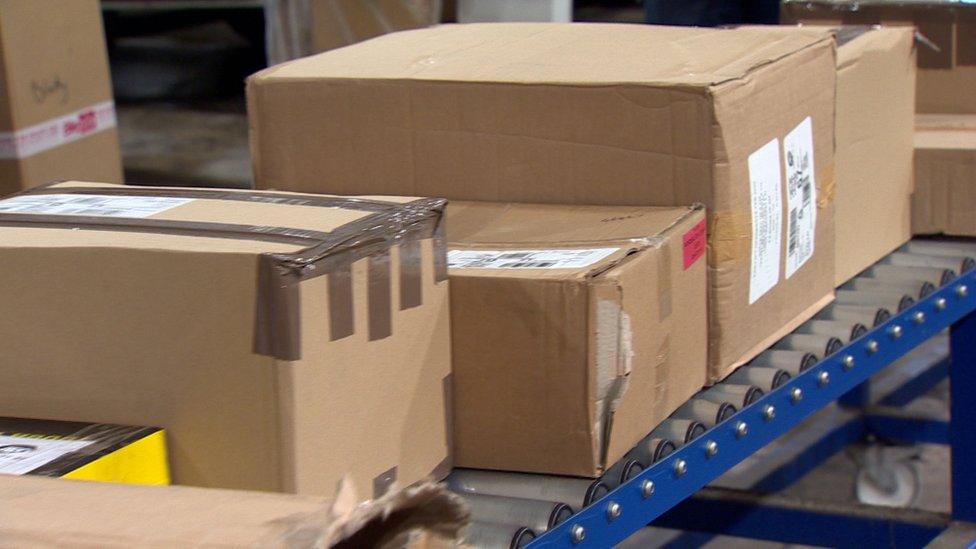
Could more paperwork mean businesses have to put up their prices to consumers?
Richard Armour, sales director at Beatties, said: "It's going to mean a lot more administration for us, we've another six or seven administrative staff coming on so it's a greater cost.
"We probably spent £100,000 last year upgrading our service and we are going to have to spend that again this year - that all has to be paid for."
A Ballymoney retailer called North x South, that sells electrical goods to and from GB to NI, had set up a base in the Republic of Ireland in the case of a no-deal Brexit.
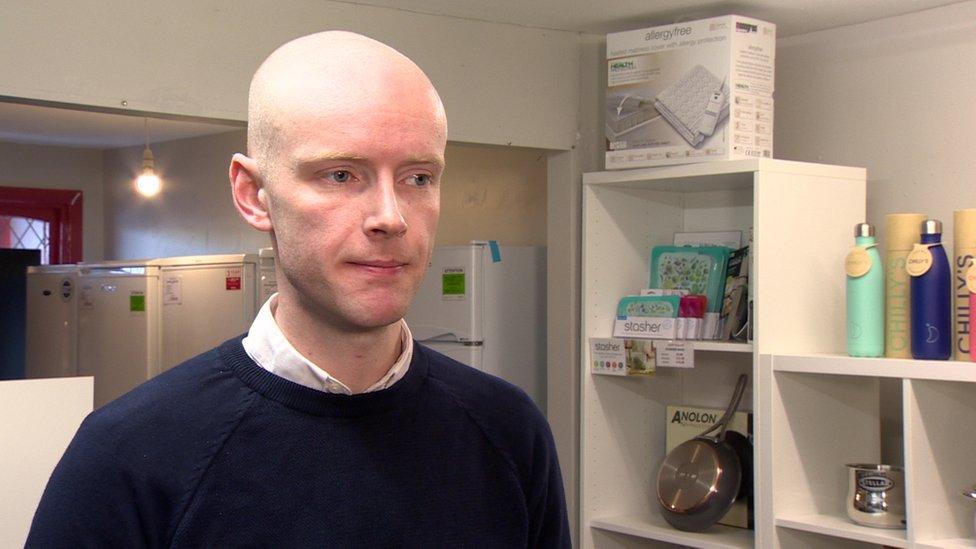
Andy Kilpatrick is managing director of a company that sells electrical goods
But it now thinks there will not be much impact on its operations.
"We don't foresee much of a change to consumer pricing - what we might find is small delays, " managing director Andy Kilpatrick said.
"It might require new processes, there might be costs involved, it's just if we want to continue being in business, it's just part of life. Nobody really wants to invest any more resources in hypothetical situations,"
The Brexit deal means Northern Ireland will follow EU rules on agricultural and manufactured goods - the rest of the UK will not.
Additionally, the whole of the UK will leave the EU's customs union but Northern Ireland will continue to enforce the EU's customs code at its ports.
This means some new checks and processes for goods moving between Northern Ireland and other parts of the UK.
The nature and extent of any checks will only become clear near the end of a one year transition period which expires at the end of 2020.
- Published27 January 2020
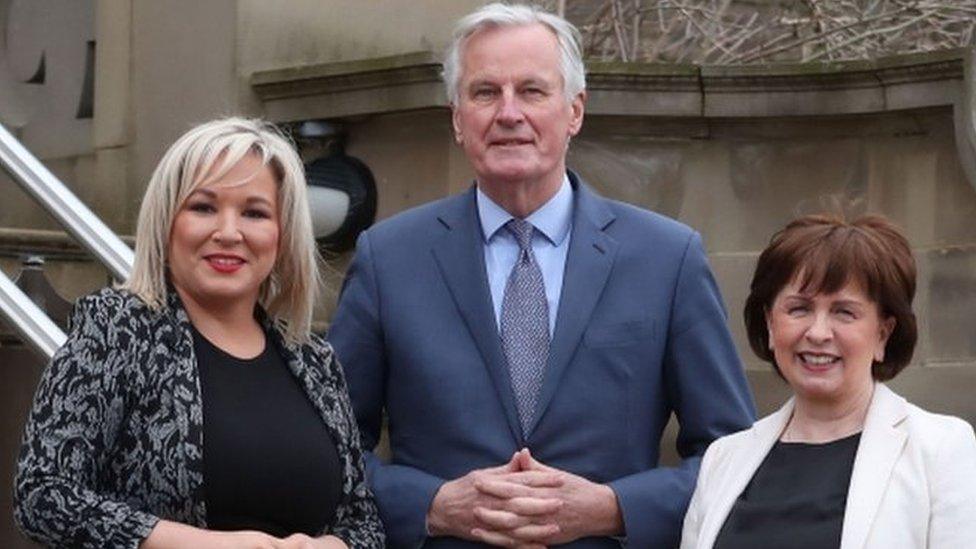
- Published28 January 2020
